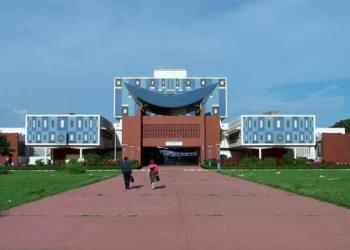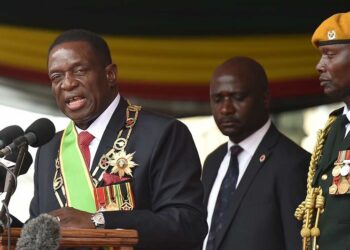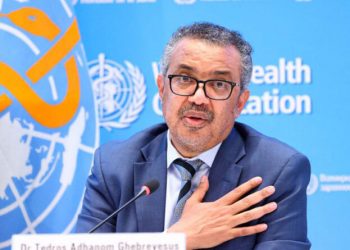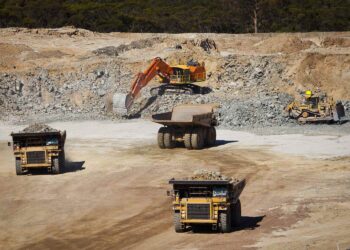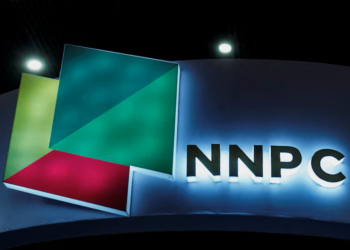Industrialisation is a key driver of of sustainable development because of its potential impact on the economic and social well-being of a country’s population. The backbone of any national economy is its stock of infrastructure. Sound transport networks and modern ports reduce transportation costs. High-capacity telecommunication networks facilitate vast, fast communication and efficient flow of information. Pipelines for oil and gas ensure constant energy supply and export, while ample generation capacity and functioning transmission and distribution networks secure disruption-free production of goods and provision of services. All these components of the infrastructure also contribute significantly to the well-being of the population and the productivity of the workforce and facilitate broader access to education and health services. The Nigerian economy is dependent on oil through direct and indirect channels, despite the diminishing contribution of oil to growth. The share of oil and gas revenues in gross domestic product (GDP) has been steadily declining and is only about 10 per cent today. Nonetheless, oil and gas still account for about 90 per cent of Nigeria’s exports and about half of consolidated government revenue. The oil price shock of late 2014 and the aftermath pushed the economy into recession in 2015 and 2016 and precipitated a major federal and state budgetary crisis. It decreased Nigeria’s already low government revenue and expenditure to alarmingly low levels in 2016 and a fraction of the levels in any peer country.
Public procurement in Nigeria was reviewed to determine the costs of corruption in government contracts. Although procurement fraud tends to be one of the most common avenues of corruption in most countries, its incidence in Nigeria was particularly severe. A federal government survey noted that prior to 1999 the government lost an average of about N40 billion (US$300 million) each year from corrupt practices in public procurement. This occurred in various forms: inflation of contract costs, award of contracts for non-existent projects, over-invoicing, diversion of public funds to foreign banks, and low project quality because of the use of inexperienced contractors. Moreover, procurement costs in Nigeria were significantly higher compared with costs for similar projects in neighbouring countries such as Ghana. Confronted with a fragile economic situation, Nigeria recognised the urgency of changing course and embarked on critical reforms to address economic distortions and strengthen the fiscal outlook. Initial critical steps to restore macroeconomic stability, boost revenues, and create the conditions to reignite growth and poverty reduction have been taken. Furthermore, the Central Bank of Nigeria (CBN) has refocused on its core mandate of price stability and is tightening monetary policy, including by increasing interest rates, as is appropriate to reduce inflation. A targeted cash transfer program is being rolled out to cushion the impact of high inflation on the poor and economically insecure households (World Bank, 2024). Improving key areas of the business environment can improve productivity of the Nigerian economy and competitiveness of Nigerian firms.
By 2050, Nigeria will host a 240 million labour force, mainly living in urban areas. By reducing administrative barriers on establishing, operating and closing businesses, and by fostering deeper financial markets for the private sector, especially to firms which are not connected to large established conglomerates, the government can leverage Nigeria’s highly entrepreneurial people to foster private sector–led economic growth. Concurrently, the government can implement policies to help upgrade the skills of the labour force, fill infrastructure gaps, allow more domestic, regional and foreign competition among firms, and adopt productivity-enhancing solutions. For Nigeria to foster a middle-class society, the government will need to aim at both increasing the overall economic productivity and creating more gainful employment opportunities. Sectors with the highest employment potential include light manufacturing, construction, information and communication technology, wholesale and retail trade, and the agricultural sector, such as meat and poultry, oil palm, and cocoa.
Nigeria’s Road to Economic Freedom: Local Innovations Lead the Way
The pursuit for a better quality of life overseas has taken on an anxious, nerve-tingling quality known as ‘JAPA’. As earlier said, it’s a Yoruba word meaning to run, flee or escape. There has been a general concern in Nigeria about the increasing desperation of people (old and young) seeking greener pastures abroad by any means possible. It has also been observed that a lot of professionals in the fields of education, health, and technology and some artisans preferred to travel abroad to better their lives. The Japa movement is also seen beyond the desire for a better life; many Nigerians are fleeing the country in response to the failure and corruption of the public institutions that should serve them. Japa is a continuous mass exodus of the citizens to other countries of economic benefits to Nigerians. For instance, Nigeria’s economic downturn has been observed to be the key reason that drove many Nigerians out of the country to survive. The health sector crisis, which includes unpaid wages, endless strikes, and poor infrastructural facilities, is observed as a reason for brain drain in the health sector. The African Development Bank (AfDB) Vice-President for Economic Governance and Knowledge Management, Prof. Kevin Urama, in an interview with the News Agency of Nigeria (NAN), indicated that the global economic system often disadvantages African economies, necessitating a reassessment of the continent’s reliance on foreign solutions. “Africa must focus on what it can do internally to address its challenges and create sustainable growth,” Urama stated. He called for policies that prioritise adding value to Africa’s natural resources locally instead of exporting raw materials, a practice rooted in the continent’s colonial past. “Africa must focus on what it can do internally to address its challenges and create sustainable growth,” Urama stated. He called for policies that prioritise adding value to Africa’s natural resources locally instead of exporting raw materials, a practice rooted in the continent’s colonial past. Urama emphasised the need for local content policies, franchising, and preferred procurement strategies to attract capital and build industries within Africa.
The Special Adviser to the Vice President Kashim Shettima on Economic Affairs, Tope Fasua, noted that Nigeria has all that it takes to overcome all of its current economic challenges given the country’s huge human and natural resources. He, however, said for Nigeria to unlock its full potential, the country must develop its own homegrown solutions and take advantage of the limitless opportunities that abound in the country to address its needs, especially in the short run. Also, experts say Nigeria’s ship of industrial development might continue to go adrift without a strong homegrown nurtured synergy between engineering and the core-manufacturing sub-sector, otherwise known as the machine tool industry. Promoting and adopting indigenous content will enable Nigeria to benefit from the increasingly global digital technology market. It will also help to conserve foreign exchange for the country and boost exports. There is a growing consensus that Nigeria must look inward for solutions rather than relying heavily on external institutions like the World Bank and IMF. Instead, Nigeria’s policymakers should prioritise homegrown economic strategies developed by local experts who understand the terrain and the people’s needs. Listening to indigenous voices and implementing policies that reflect local conditions will be key to reversing the poverty trend. It was high time the government came to terms with the fact that these foreign financial institutions often impose policies that do not align with Nigeria’s unique socio-economic realities.
In 2024, at the 34th and 35th combined convocation ceremonies of the Federal University of Technology, Akure (FUTA), President Bola Ahmed Tinubu stated that for Nigeria to unlock its full potential, the country must develop its own homegrown solutions. According to him, specialised and conventional universities, along with other research institutes, were established as solution providers and problem solvers. He called for closer collaboration to tackle the challenges Nigeria is facing. The president noted that partnerships among stakeholders are critical to problem-solving and development, maintaining that the challenges facing the country require homegrown solutions. He said, “The specialised and conventional universities, research institutes, and other tertiary institutions in our country were established as solution providers and problem solvers for all our local and national problems. Our tertiary and research institutions are much more relevant at this time. “ The present economic situation in our country requires our institutions to join our efforts toward giving a better life to our people and making for ourselves a prosperous nation. “The government is expecting homegrown solutions to our common problems. I encourage all our researchers to bring up their research outputs that will improve the well-being of our people.’’ At another event, Tinubu pointed out that it would be wishful thinking to think that Africa’s renaissance would happen as a gift. He expressed regret that African leaders have for long outsourced their thinking, relying on institutions and ideologies that treated countries on the continent as consumers and not creators.
The Nigeria First Policy: A Pathway to Nigeria’s Economic Growth
Nigeria’s tech industry has witnessed impressive growth in the past decade with the rise of homegrown successful startups like Paystack and Flutterwave and billions of dollars in venture capital funding. Last year, the National Agency for Science and Engineering Infrastructure (NASENI) teamed up with Imose Technologies Ltd to launch locally manufactured laptops and tablets. NASENI, which is mandated to drive Nigeria’s science and engineering infrastructure, noted that it has long supported local content through the development of homegrown technologies. These, it said, include Nigerian-assembled vehicles, smart irrigation systems, renewable energy solutions, and electronic devices. In April, the Minister of State for Defence, Dr Bello Muhammad Matawalle, stated that the federal government is dedicated to enhancing indigenous capabilities in defence production. He noted that, underscoring the importance of private sector involvement in achieving these goals. Matawalle emphasised that such collaborations align with the newly enacted DICON Act, signed into law by President Bola Ahmed Tinubu. The Defence Industries Corporation of Nigeria was established on August 1, 1964, by an Act of Parliament and revised as the DICON Act in Chapter 94 of the Laws of the Federation, 2004. Why The Defence Industries Corporation of Nigeria Act, 2023, repeals the previous iteration of the Defence Industries Corporation of Nigeria Act and empowers the Defence Industries Corporation of Nigeria to operate, maintain, and control subsidiaries and ordnance factories to manufacture, store, and dispose of ordnance and ancillary stores and material. Similarly, the new act also established the Defence Industry Technology, Research, and Development Institute (DITRDI) to create an elaborate scientific and research-based technological foundation for Nigeria’s defence industry through the leveraging of combined, multi-disciplinary research from multiple military research institutes for application that leads to commercialisation and the development of new military technology and capacity in Nigeria.
On Monday, 5th of May 2025, the Federal Executive Council approved landmark policies aimed at strengthening Nigeria’s domestic economy and promoting local content, to be backed by an executive order signed by the president. The new policy framework tagged the ‘Renewed Hope Nigeria First Policy’ was unveiled by Mohammed Idris, the minister of information and national orientation, while briefing State House journalists after the meeting. The administration views this policy as the start of a new era focused on enterprise, self-reliance, and national pride, driven by strong public sector leadership. Recently, the Nigerian Senate extended the legislative process aimed at mandating the ministries, departments, and agencies (MDAs) of government to prioritise locally manufactured automobiles in their procurement processes. Specifically, the piece of legislation, titled ‘Local Automotive Industry Patronage Bill, 2025, sponsored by Senator Patrick Ndubueze (APC Imo North), passed second reading during the plenary. The lawmaker stressed the urgent need for a sustainable automobile policy that would institutionalise the use of Nigerian-made vehicles, especially in government. He said, “How do we stem the free fall of the Naira if we cannot address our appetite for foreign goods? How do we support the development of indigenous brands if the biggest spender, year on year — government — refuses to buy made-in-Nigeria goods?” Ndubueze, therefore, proposed that at least 75% of official vehicles used by public officers and civil servants should be locally manufactured, not merely assembled, saying, “This is the first step to saving our economy, protecting our currency, and creating jobs for our people.”
The bottom line is that the government should be exemplary in its implementation of the Nigeria First policy if it is to have the moral ground to enforce compliance. For it is bound to experience pushbacks from vested interests, especially in the private sector, who are currently profiteering from the unbridled importation of foreign goods. Already, businessmen in the downstream sector of the oil and gas industry are cautioning the federal government against abruptly stopping fuel importation. They argue that the country’s refining capacity is still insufficient to meet demand and that a sudden ban could lead to shortages and price increases, which could potentially worsen inflation. They also emphasise the need for a level playing field for all players in the market, including local refiners, importers, and retailers, to ensure availability and affordability of fuel. Chinyere Almona, director-general of the Lagos Chamber of Commerce and Industry (LCCI), acknowledged that the policy aims to promote indigenous production, empower local businesses, and reduce overdependence on imports. Founded in 1888, the Lagos Chamber of Commerce and Industry is the premier Chamber of Commerce in Nigeria. It was incorporated in 1950 as a non-profit making organisation, limited by guarantee under the Companies Act of 1948. It is the foremost private sector group in Nigeria, with over 4,000 corporate members. It also accounts for an estimated 60% of industrial output, 65% of general commerce and 75% of financial services in the country.
“This policy direction is timely and aligns with our long-standing advocacy for an inclusive, self-reliant, and resilient national economy,” Almona said. Almona said the ‘Nigeria First’ policy needs to be complemented by large-scale investments in vocational training and digital skills to align with evolving market needs. “Partnerships with academic institutions and the private sector are essential to bridge skill gaps and drive innovation within the local talent economy,” the director general said. “The Nigeria First Policy should align with regional and continental trade agreements, especially the African Continental Free Trade Area (AfCFTA). Strategic diplomacy and a focus on competitiveness—not protectionism—should define Nigeria’s trade approach in the global economy. Finally, a robust countercyclical fiscal stance will also help limit the impact of resource price volatility on government spending. This includes adherence to the rules of fiscal transfer and withdrawal rules to the excess crude account. Emphasis on proper budget frameworks linked to priorities, better public finance management, and increased transparency facilitated by making all related data available online are also essential for a more predictable fiscal policy.
















































